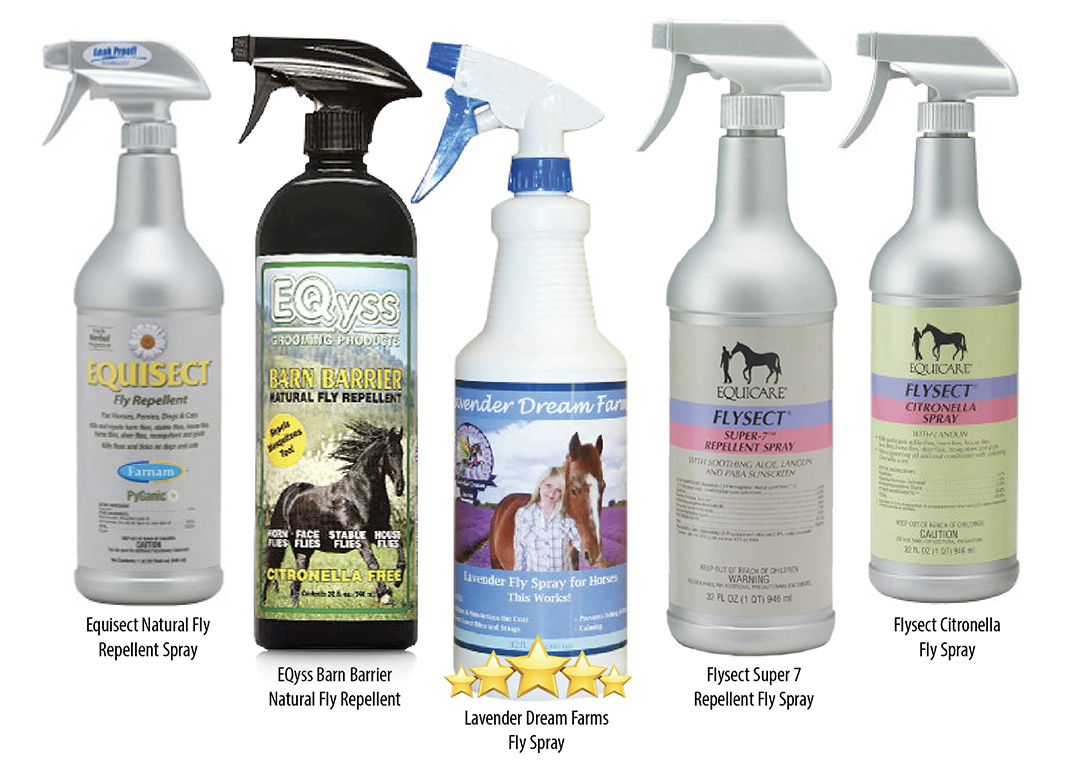Fly Spray Showdown
Posted by Mary’s Tack & Feed on 22nd May 2018

It can be overwhelming shopping for horse supplies in spring to early summer. You know you need to pick up some fly spray, as your horse has already started acting irritated in the stall, cross ties and under saddle. Swishing their tail, stomping their feet, and reaching back to nip at parts of their skin to get the annoying creatures off them. You walk into the tack store and you are greeted with a huge wall of options, so many options it’s hard to decide. You know not all fly sprays are created equal but where do you even begin?
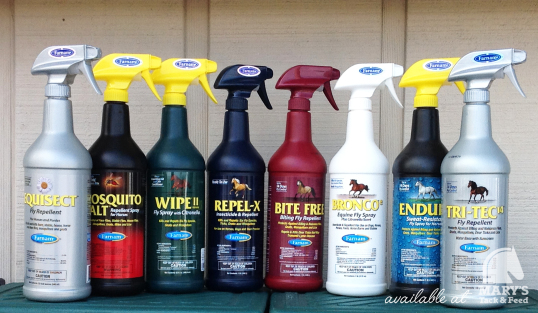
Here are a couple of things to consider as you shop for your perfect Fly Spray:
What does it repel? Many commercial fly sprays protect our horses against, well, flies! But did you know there are many types of flies? Blue and Black Blow Flies, Deer and Horse Flies, Dung and Black Flies, Flesh, and Green Bottle Flies. Horn and Face Flies, the Common House Fly, The Dreaded Bot Fly and our close friend The Biting Stable Fly. You can refer to your County’s website to find out what kind of flies live in your area and then check the label of the commercial fly spray you are considering buying. Some commercial fly sprays also combat mosquitoes and ticks (Ultra Shield Ex, Repel X, Bronco, Pyranha, Ambush) – again refer to the label to figure out which products repel what pest.
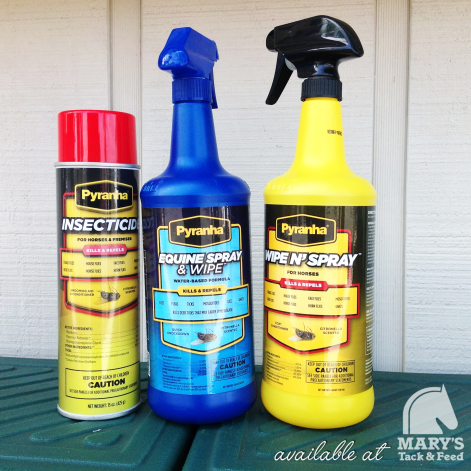
Oil Based or Water Based? Fly sprays come in two bases, oil, and water. Water based fly sprays (like Ultra Shield Sport ) are great if you or someone you know can get out to the barn every day and reapply the fly spray to your horse(s). If you need something that is heavier duty, can endure some weather and sweat than an oil based spray is probably the right option for you. (Endure, Opti Force ). Be sure to test a small patch of your horse’s skin with oil based products as a small number of horses will have an adverse skin reaction.
Natural Fly Sprays: Most commercial fly sprays contain Piperonyl Butoxide, Cypermethrin and Permethrin which are synthetic or semi synthetic pesticides commonly used throughout the world. But many of us wish for something greener, organic, or non-toxic to put on our four legged friends (and safer for us to apply to them). There are plenty of them on the market! Pyrethrin is an organic compound found in some fly sprays derived from Chrysanthemums which are considered low-toxicity, though they are enhanced in their strength when used in conjunction with a synthetic like Piperonyl Butoxide. Most Natural Fly Sprays are made with essential oils such a mint, citronella, or lavender (Eqyss Barn Barrier, Lavender Dream Farm, Flysect, Equisect). Be sure to test a small patch of your horse’s skin with essential oil based fly sprays as a small number of horses will have an adverse skin reaction.
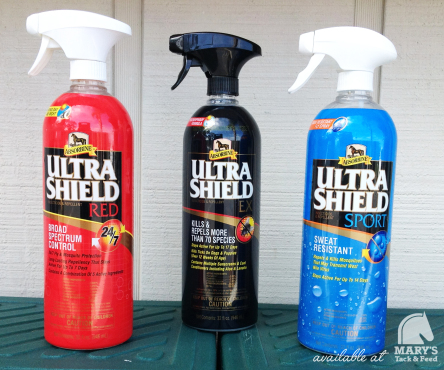
Added Benefits: The battle for fly spray supremacy doesn’t just end at repelling pests. Increasingly commercially available fly sprays consider the damage that can happen to your horse’s coat with constant use. Many now include coat conditioners and sunscreens to protect the hair follicles with each application (Ultra Shield Ex, Ultra Shield Red, Mosquito Halt, Espree)
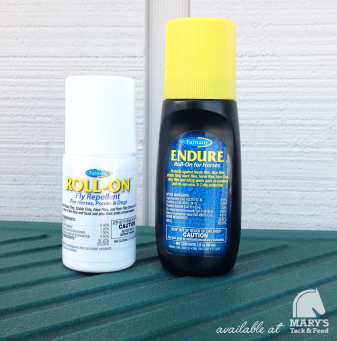
If Fly Sprays still have you a bit stumped, come in to Mary’s or give us a call, our friendly staff is happy to brainstorm and make suggestion on which product may be the best for you. Be sure to check out our other posts about stopping flies this season: The Secret Life of Flies and Gear Up For Fly Season!

